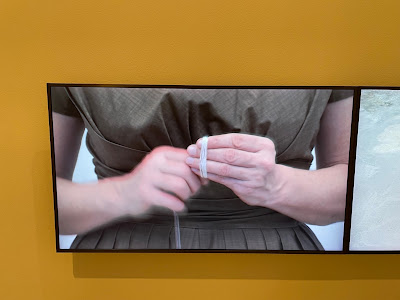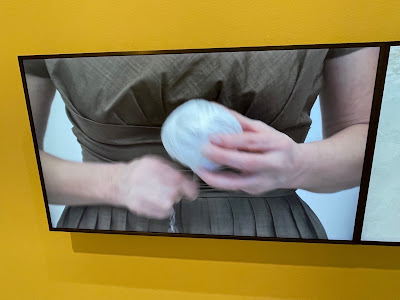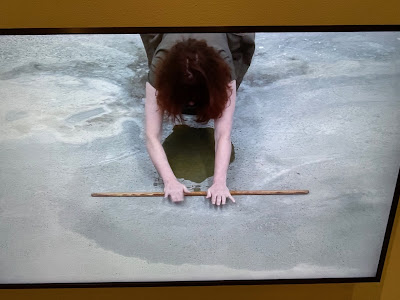[Πρώτη δημοσίευση, Το ΒΗΜΑgazino, Κυριακή 22 Οκτωβρίου. Ελαφρώς επιμελημένο]
Συντάσσω αυτό το κείμενο στην Μελβούρνη, Βικτώρια, όπου βρίσκομαι προσκεκλημένος από το εδώ ομώνυμο Πανεπιστήμιο σε συνάρτηση με την νεοσυσταθείσα έδρα Hellenic Senior Lectureship in Global Diasporas. Με κεντρικό φορέα υποστήριξης την Ελληνική Κοινότητα της Μελβούρνης, ή έδρα αυτή, θα ήθελα να υπογραμμίσω, είναι από ότι γνωρίζω η πρώτη πανεπιστημιακή περίπτωση στον αγγλόφωνο κόσμο που ρητά θέτει την έρευνα της Ελληνικής διασποράς ως το πρωταρχικό ζητούμενο.
Το όραμα είναι πολυδιάστατο και σχεδιασμένο στρατηγικά. Ο κάτοχος της έδρας, ο ιστορικός Δρ. Αντώνης Πιπέρογλου, καλείται να μελετήσει την ελληνική διασπορά στις τοπικές (Βικτώρια) και εθνικές (Αυστραλία) διαστάσεις της καθώς και συγκριτικά με άλλες διασπορές όπως αυτές της Αμερικής και του Καναδά. Ταυτόχρονα, η θέση του στην υψηλού κύρους School of Philosophical and Historical Studies εγγυάται μια γόνιμη αλληλεπίδραση μεταξύ της ελληνικής περίπτωσης και της ευρύτερης πανεπιστημιακής συζήτησης περί διασπορών. Ο διορισμός του σε ένα από τα καλύτερα πανεπιστήμια της Αυστραλίας εγγυάται την υψηλή ποιότητα της παραγόμενης έρευνας και διδασκαλίας. Όλα αυτά ενώ το Πρόγραμμα Νεοελληνικών Σπουδών στο γειτονικό La Trobe University παράγει πολύτιμο έργο, προσφέροντας μαθήματα ελληνικής γλώσσας και πολιτισμού.
Η έδρα θα επιτελέσει μια πρόσθετη λειτουργία. Αποστολή της θα είναι να συμβάλλει στην διάχυση της γνώσης που παράγει πέρα από το πανεπιστήμιο, προς την τοπική αλλά και το παγκόσμιο αγγλόφωνο και ελληνόφωνο κοινό μέσω συμμετοχής σε τοπικά δρώμενα, άρθρα σε εφημερίδες και περιοδικά, καθώς και διαδικτυακά fora. Εμπεριέχει με άλλα λόγια μια πτυχή public scholarship.
Οι συνθήκες είναι ευοίωνες για την επιτέλεση αυτής της προσέγγισης. Η έδρα προστίθεται ως μια ακόμα πηγή συνεισφοράς στην Ελληνική πολιτιστική παραγωγή στο εύρωστο πολιτιστικό δίκτυο της κοινότητας αλλά και της ευρύτερης παροικίας. Η κοινότητα διατηρεί ένα πλέγμα σχολείων, οργανώνει την σειρά δια ζώσης δημόσιων ομιλιών –οι οποίες επίσης μεταδίδονται μέσω online streaming και αρχειοθετούνται– οργανώνει το ετήσιο φεστιβάλ Αντίποδες, και οργανώνει το Ελληνικό φεστιβάλ στην πόλη, μεταξύ άλλων δραστηριοτήτων.
Η παροικία στην Μελβούρνη, η οποία αριθμεί παραπάνω από 200.000 Έλληνες, διατηρεί ένα δίκτυο ραδιοφωνικών σταθμών, εφημερίδων και πληθώρα πολιτιστικών οργανισμών. Δημοσιογράφοι, ποιητές, καλλιτέχνες, πανεπιστημιακοί, εκπαιδευτικοί, πολιτιστικοί και πολιτικοί ακτιβιστές αγωνίζονται ο καθένας με τον τρόπο του και στα θεσμικά πλαίσια που λειτουργούν να δημιουργήσουν μια στοχαστική δημόσια σφαίρα η οποία παίρνει θέσεις σε παροικιακά ζητήματα, παράγει ιδέες, εξασκεί κριτική και προσφέρει πηγές αυτογνωσίας. Οι συνθήκες λοιπόν υπάρχουν ώστε η πανεπιστημιακή γνώση η παραγόμενη από την έδρα του Hellenic Senior Lectureship in Global Diasporas να διαχυθεί ευρέως τοπικά δια ζώσης αλλά και παγκόσμια μέσω του διαδικτύου.
Ένας από τους σκοπούς της πρόσκλησής μου στο πανεπιστήμιο εδώ είναι να δώσω το 2023 Walter Mangold Lecture στην οποία θα παρουσιάσω τον τρόπο με τον οποίο έχω συνδυάσει την έρευνα μου στην Ελληνική Αμερική σε σχέση με ευρύτερες πανεπιστημιακές συζητήσεις περί εθνότητας και διασποράς. Σε συνάρτηση με τον ανάλογο ρόλο του Δρ. Πιπέρογλου στην Αυστραλία, ανοίγεται λοιπόν μια συζήτηση για την μελέτη της ελληνικής διασποράς ως εξωστρεφούς πρακτικής, η οποία συμπεριλαμβάνει και συγκριτικές προσεγγίσεις. Μέσω αυτής της οπτικής, έδρες ελληνικής διασποράς θα μπορούσαν να ιδρυθούν σε Αμερικανικά πανεπιστήμια και αλλού.
Στα πλαίσια της παροικίας, έχοντας δυο εβδομάδες στην πόλη είχα την ευκαιρία να βιώσω από κοντά τον αγώνα αλλά και την πολιτισμική αγωνία αρκετών ανθρώπων που διακινούν το ελληνοαυστραλιανό πολιτιστικό δίκτυο στην πόλη. Το συμβούλιο της κοινότητας δημιούργησε ευκαιρίες για μακροσκελείς ανταλλαγές απόψεων περί θεμάτων της διασποράς και πολιτιστικής πολιτικής. Συνομίλησα με εκπαιδευτικούς και με αρκετά άτομα, των οποίων το έργο γνώριζα ήδη μέσω των κοινωνικών δικτύων. Οι δημιουργοί αυτοί νοιώθουν ότι η παροικία βρίσκεται σε ένα σταυροδρόμι. Το επείγον ερώτημα που προκύπτει αφορά το μέλλον. Θα υπάρξει μια νέα γενιά η οποία θα συνεχίσει την ουσιαστική πολιτιστική παραγωγή στην περιοχή;
Η παροικία ευτύχησε να έχει υψηλής εμβέλειας φωτογράφους, λογοτέχνες, ποιητές, καλλιτέχνες, πανεπιστημιακούς και δημόσιους διανοούμενους. Τι είδους ενέργειες απαιτούνται ώστε μια νέα γενιά να διαμορφώσει το πολιτιστικό μέλλον με υψηλής ποιότητας πολιτιστική παραγωγή; Η ερώτηση εγείρεται επιτακτικά. Ανταλλάχτηκαν απόψεις και στην δημόσια ομιλία μου στην κοινότητα και στις συναντήσεις μου με πολιτιστικούς φορείς της κοινότητας. Το θέμα απαιτεί συστηματική έρευνα και στοχασμό.
Πολλά γράφονται για το θέμα «Ελληνική διασπορά». Στην Μελβούρνη για πρώτη φορά συνάντησα τo κάλεσμα από μη πανεπιστημιακούς –συμπεριλαμβανομένων και εκπροσώπων τοπικών θεσμικών φορέων– για μια νέα χαρτογράφηση της διασποράς. Οι φορείς αναγνωρίζουν το αυταπόδεικτο, δηλαδή ότι η παροικία είναι μια ετερογενής κοινωνική ομάδα και πολιτιστικά (οι διαφορές για παράδειγμα μεταξύ μεταναστών και της δεύτερης και τρίτης γενιάς) αλλά και γλωσσικά και ιδεολογικά. Γίνεται λοιπόν μια συνειδητή προσπάθεια να αναγνωρίζεται αυτή η πολλαπλότητα και να δημιουργούνται συμπεριληπτικές θεσμικές πλατφόρμες ώστε να εκφράζονται οι διάφορες φωνές.
Σε αυτήν την ανοικτότητα συντελεί βέβαια και ο κοσμικός χαρακτήρας της κοινότητας. Η συστηματική και θεσμική αναγνώριση αυτής της ετερογένειας έρχεται σε αντίθεση με την περίπτωση της Ελληνικής Αμερικής όπου τα κυρίαρχα αφηγήματα επιμένουν να παρουσιάζουν μονοδιάστατες αναπαραστάσεις της ελληνοαμερικανικής ταυτότητας. (Υπάρχουν βέβαια και εξαιρέσεις.) Το πολιτικό ερώτημα «ποιος έχει το δικαίωμα και την εγκυρότητα να ορίσει την ταυτότητα της παροικίας αλλά και των άλλων ελληνικών διασπορών» τίθεται ανοικτά και άμεσα εδώ.
Mια διάσταση της νέας εννοιόλογησης του όρου και πρακτικής «διασπορά» από τους Έλληνες Μελβουρνιώτες συνδέεται με την επιθυμία της κοινότητας για την ίδρυση της έδρας που προανέφερα. Φορείς και πρόσωπα συνδέονται με την Ελλάδα και επιθυμούν αμοιβαίες πολιτιστικές ανταλλαγές και ισότιμες συμπράξεις.
Αλλά σημαντικός αριθμός ανθρώπων με τους οποίους συνομίλησα (στα πλαίσια και της παροικίας και της κοινότητας) ρητά πλέον απομακρύνονται από την ιδέα της Ελλάδας ως μητροπολιτικού κέντρου. Θεωρούν ότι το διασπορικό κέντρο τους είναι η Ελληνική παροικία της Μελβούρνης στην οποία με τεράστιο μόχθο έχουν δημιουργήσει θεσμούς που αγωνίζονται να διατηρήσουν, ο κριτικός δημόσιος λόγος που αγωνιούν να συνεχίζει να καλλιεργείται· άτομα που έχουν μνήμες και εμπειρίες που επιθυμούν να εκφράσουν, αρχεία τα οποία θέλουν να οργανώσουν, χώρους να την αφηγηθούν, επιτελέσουν και να την στοχαστούν. Κυκλοφορούν ιδέες να ενσωματωθεί η ελληναυστραλιανή ιστορία και κουλτούρα στο εκπαιδευτικό υλικό των σχολείων. [κάτι που επίσης ισχύει σε ορισμένους ελληνοαμερικανικούς κύκλους.]
Η νέα χαρτογράφηση εκ μέρους της κοινότητας λοιπόν αφορά ένα πραγματικό φαινόμενο το οποίο κάποιοι μελετητές από εμάς έχουν ήδη εντοπίσει. Στην Μελβούρνη γίνομαι μάρτυρας της άρθρωσης* ενός εναλλακτικού μοντέλου «παγκοσμίου ελληνισμού» που η μεταφορά που τον αποδίδει πιο ρεαλιστικά είναι αυτής του πολυκεντρικού και πολύμορφου δικτύου σε αντίθεση με τις επικρατούσες εθνικιστικές αντιλήψεις του φυλλορροούντος δέντρου (του εθνικού κορμού) ή του οργανικού εθνικού σώματος. Το νέο μοντέλο του δικτύου αναγνωρίζει τις ποικίλες διασυνδέσεις των διαφόρων ελληνικών διασπορικών εκφράσεων με την Ελλάδα αλλά επιμένει στην αναγνώριση της ιστορικής και πολιτιστικής ιδιαιτερότητα της κάθε μιας. Σε αυτόν τον χάρτη η κάθε διασπορά δεν είναι ούτε περιφέρεια ούτε προέκταση του «μητροπολιτικού κέντρου» αλλά μια διαφοροποιημένη πολιτιστική πραγματικότητα.
Αυτήν την λογική εκφράζει και η υποστήριξη της νεοσυσταθείσας έδρας από την κοινότητα. Εκφράζει ακριβώς αυτήν την θέληση για αυτογνωσία και αυτονομία –το δικαίωμα να ορίζει αυτή τις ποικίλες πτυχές της ταυτότητάς της– καθώς ταυτόχρονα να καλλιεργεί ένα παραγωγικό και ισότιμο διάλογο και ανταλλαγές με την Ελλάδα και τις διάφορες διασπορές.
Γιώργος Αναγνώστου
Ο Γιώργος Αναγνώστου κατέχει την έδρα Μιλτιάδης Μαρινάκης στο πρόγραμμα Νεοελληνικών Σπουδών του Πολιτειακού Πανεπιστημίου του Οχάιο.
Σημείωση
* Δύο παραδείγματα, μεταξύ πολλών άλλων:
«Αναζητώντας τον πολύμορφο, πολυπολιτισμικό, πολυφυλετικό, πολυγλωσσικό και πολυκεντρικό οικουμενικό Ελληνισμό». Κώστας Καραμάρκος
“Much of our identities as Greeks are rooted in the suburbs in which we settled, raised our children and grew up ourselves, and our histories are entwined with those who shared those experiences with us whether Greek or not. Given that the subtleties and nuances of our local Greek identities distinguish us from one another and the sub-cultures that arise from our co-habitation deserve study and celebration, perhaps Dean Kotsianis’ mural can be interpreted as a profound symbol as a way of re-configuring the relevance of Hellenism to Melbourne by moving away from a narrow identification of Greeks via their place of origin within Greece, an increasingly obscure and futile endeavour considering how few of the latter generations identify in any meaningful way with their grandparents’ birthplace, to a local identity, which is rooted in the experiences and interactions of those who actually live in that area, making these relevant to all those who still remain in, or identify with that area, considering that many of those who do so, have moved out of the suburb, some photos and a lingering affection for the local football team the most enduring ties to the place of their own personal migrant foundation myth.” Dean Kalimniou








